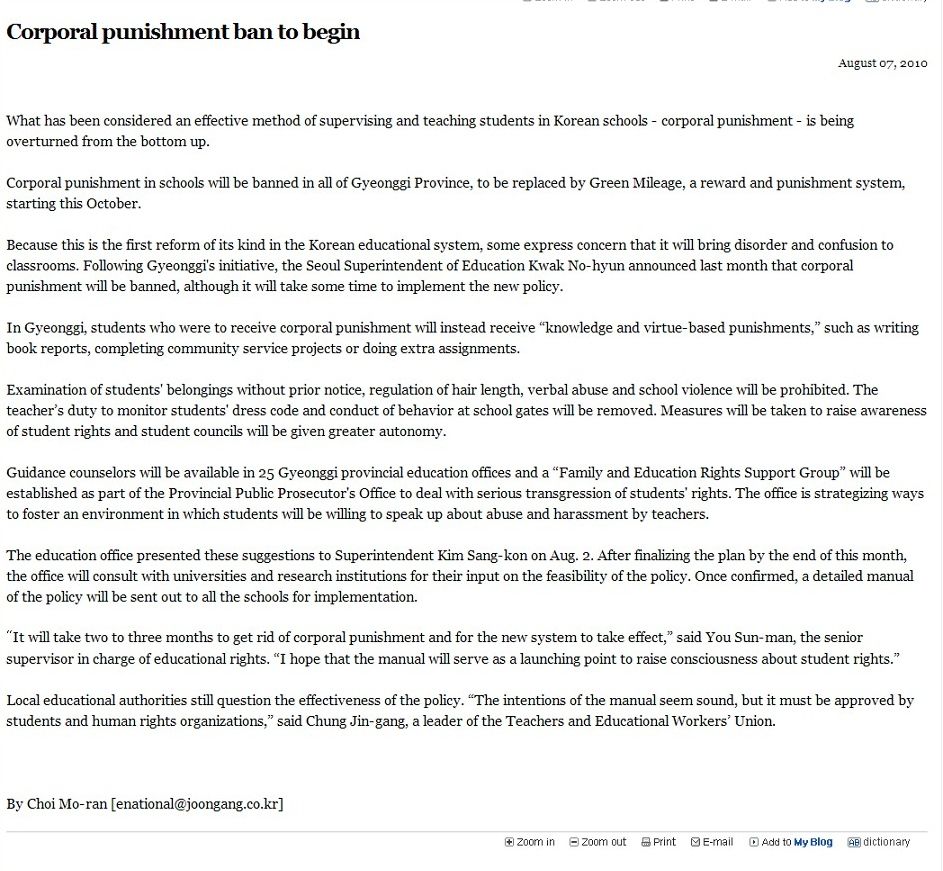Joong Ang Daily, Seoul, 7 August 2010
Corporal punishment ban to begin
By Choi Mo-ran
What has been considered an effective method of supervising and teaching students in Korean schools -- corporal punishment -- is being overturned from the bottom up.
Corporal punishment in schools will be banned in all of Gyeonggi Province, to be replaced by Green Mileage, a reward and punishment system, starting this October.
Because this is the first reform of its kind in the Korean educational system, some express concern that it will bring disorder and confusion to classrooms. Following Gyeonggi's initiative, the Seoul Superintendent of Education Kwak No-hyun announced last month that corporal punishment will be banned, although it will take some time to implement the new policy.
In Gyeonggi, students who were to receive corporal punishment will instead receive "knowledge and virtue-based punishments," such as writing book reports, completing community service projects or doing extra assignments.
Examination of students' belongings without prior notice, regulation of hair length, verbal abuse and school violence will be prohibited. The teacher's duty to monitor students' dress code and conduct of behavior at school gates will be removed. Measures will be taken to raise awareness of student rights and student councils will be given greater autonomy.
Guidance counselors will be available in 25 Gyeonggi provincial education offices and a "Family and Education Rights Support Group" will be established as part of the Provincial Public Prosecutor's Office to deal with serious transgression of students' rights. The office is strategizing ways to foster an environment in which students will be willing to speak up about abuse and harassment by teachers.
The education office presented these suggestions to Superintendent Kim Sang-kon on Aug. 2. After finalizing the plan by the end of this month, the office will consult with universities and research institutions for their input on the feasibility of the policy. Once confirmed, a detailed manual of the policy will be sent out to all the schools for implementation.
"It will take two to three months to get rid of corporal punishment and for the new system to take effect," said You Sun-man, the senior supervisor in charge of educational rights. "I hope that the manual will serve as a launching point to raise consciousness about student rights."
Local educational authorities still question the effectiveness of the policy. "The intentions of the manual seem sound, but it must be approved by students and human rights organizations," said Chung Jin-gang, a leader of the Teachers and Educational Workers' Union.
Copyright by JoongAng Ilbo
About this website
Search this site
Video clips
Picture index
Country files: School corporal punishment in S. Korea
Following month

